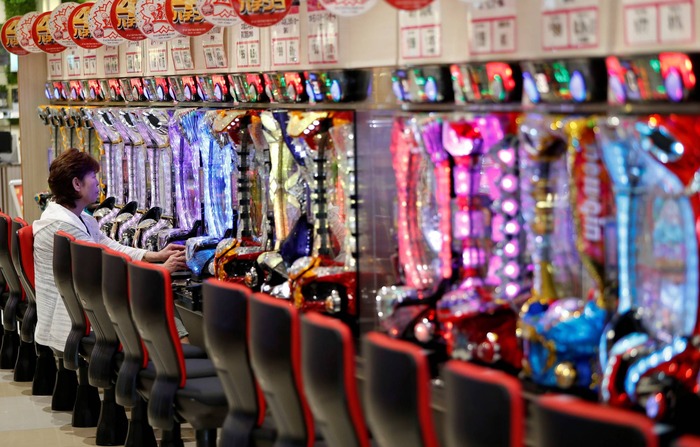In the past few years, online gambling and partially Onkaji has been quickly changing in Japan. As the country navigates the challenges of modernization and technological progress, the appeal of online casinos has drawn the interest of many Japanese citizens.
Yet, the unclear legal regulations surrounding online gambling leave both players and operators feeling uncertain. After all, despite their rising popularity, Onkaji continues to operate in a legal gray area, shrouded in ambiguity and taboo — how can you know that it’s legal to play at a casino you’re interested in? ボンズカジノ 違法
So, we’ve decided to delve into the intricate web of regulations surrounding Onkaji in Japan and shed some light on the prevailing taboos associated with online gambling, to help you understand this topic a bit more!
The Legal Landscape of Gambling in Japan
Deeply embedded beliefs toward gambling are entwined with a rich cultural past in Japan. Throughout history, attitudes towards gambling in Japan have fluctuated, with periods of acceptance followed by prohibition.
The origins of Japan’s strict gambling laws date back to the Edo period (1603-1868) when the Tokugawa shogunate enforced regulations to address social unrest caused by widespread gambling.
Fast-forward to the modern era, and Japan continues to maintain a more conservative, so to speak, approach to gambling, having strict laws controlling different types of gambling.
The current legal framework divides gambling activities into two distinct groups: those sanctioned by the State and those prohibited by the Penal Code.
In Japan, state-sanctioned gambling covers specific types of betting that are considered socially acceptable and closely monitored; This includes horse racing, bicycle racing, powerboat racing, and some sports betting events like soccer and sumo wrestling.
These activities are managed by specialized government bodies such as the Japan Racing Association and the Japan Sports Promotion Lottery.
Meanwhile, Penal Code prohibits various forms of gambling, including traditional casino games such as roulette, blackjack, and slot machines.
Cultural Perspectives and Taboos
Japanese attitudes towards gambling are strongly influenced by traditional values of hard work, self-restraint and maintaining social balance.
Even though gambling has a significant cultural and historical background, many people approach it cautiously because they know it has the potential to be harmful and to disturb social harmony.
Historically, gambling has been perceived as a form of entertainment associated with risks, capable of leading individuals astray from their responsibilities and obligations. This perception is shaped by centuries-old notions of personal restraint and collective responsibility that are deeply ingrained in Japanese society.
As a result, gambling is often viewed with suspicion, and those who gamble to an excessive degree can be stigmatized by society.
So in light of Japan’s cultural background, the rise of online gambling brings fresh perspectives to the ongoing discussion about gambling.
While society tolerates activities like pachinko and horse racing, online casinos are in more of a grey area; Some people can have a more progressive outlook on them, while others do not approve of them, which makes things more ambiguous.
Navigating the world of Onkaji in Japan requires players to strike a delicate balance between fun and responsibility.
As the legal landscape is still unclear, Japanese players need to be thoughtful and cautious when it comes to engaging in online gambling activities, and here are some tips that can help you:
- Choose Reputable Platforms: Choose online casinos with a track record of being legitimate and reliable. Look for platforms that operate transparently, hold valid licences from reputable regulatory authorities, and prioritise player safety.
- Research Extensively: Before committing to any online casino, conduct thorough research to assess its reputation, user reviews, and regulatory compliance. Make sure that the platform adheres to responsible gaming practices and cares about player welfare.
- Verify Legal Status: While the legality of Onkaji remains uncertain in Japan, make sure to prioritize platforms that operate according to international gambling laws and regulations. Be wary of offshore casinos that operate in legal grey areas, as they may be more unreliable.
- Practice Responsible Gambling: Set limits on time and money spent on Onkaji to prevent excessive gambling behavior. Establish a budget and adhere to it strictly, avoiding chasing losses or succumbing to impulsive betting patterns. You can also use self-exclusion tools and if gambling becomes a problem — necessarily seek support.
- Protect Personal Information: Prioritise platforms that prioritise data security and privacy. Make sure the online casino you choose uses good encryption protocols and adheres to strict privacy standards to protect sensitive personal and financial information.
- Stay Informed: Stay up to date on changes to Japan’s gambling laws and consumer protection policies. Make sure you are aware of any changes to the legal framework and new developments in online gambling before you decide to play Onkaji.
- Seek Support if Needed: Seek help from reputable sources, such as support hotlines, counseling programs, or local groups that specialize in gambling addiction, if gaming starts to negatively affect your life or well-being. Remember that seeking help is a sign of strength, not weakness!
So with all that said, although the legal status of online gambling in Japan is still rather uncertain, players can still tread carefully through this terrain. Make sure that you stick to trustworthy platforms, play responsibly, and keep an eye on any changes in the law.
With a bit of caution and awareness of the risk, you can make sure that online casinos bring you only happiness!


